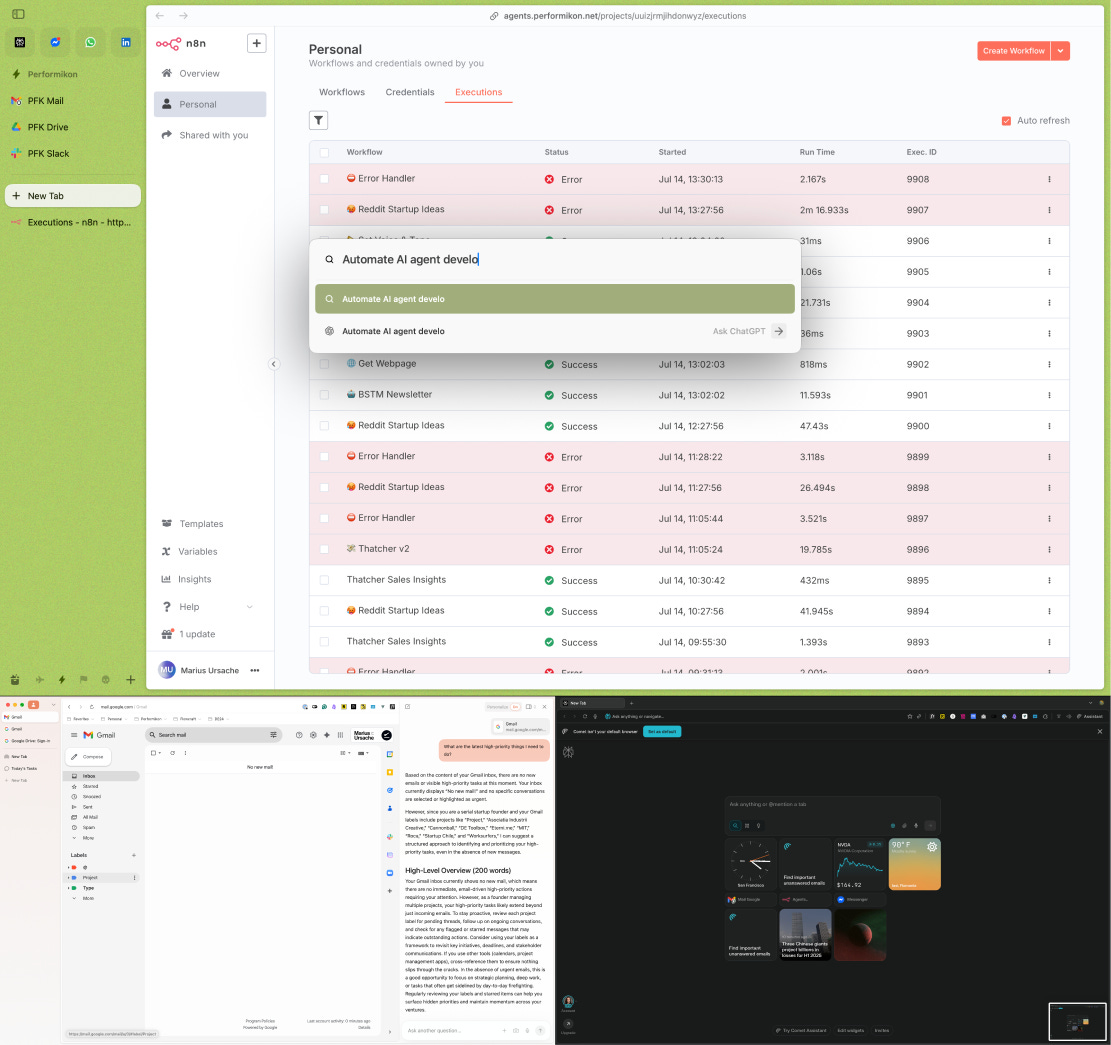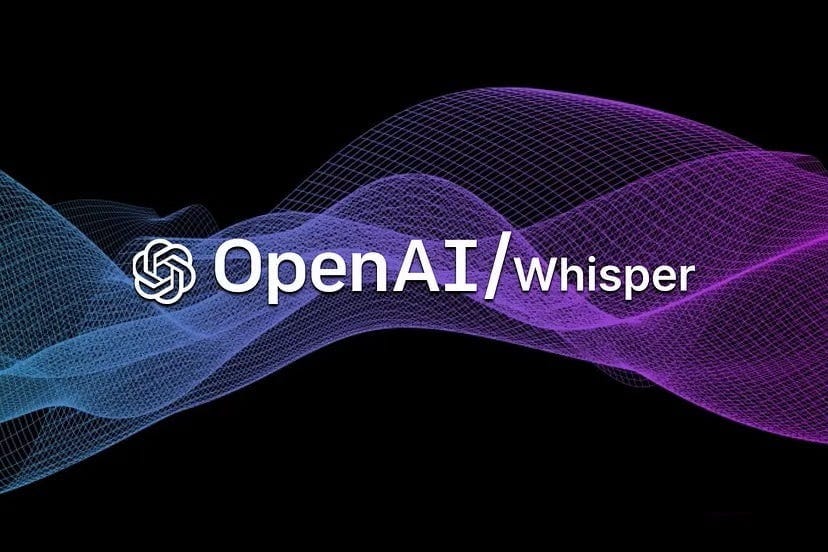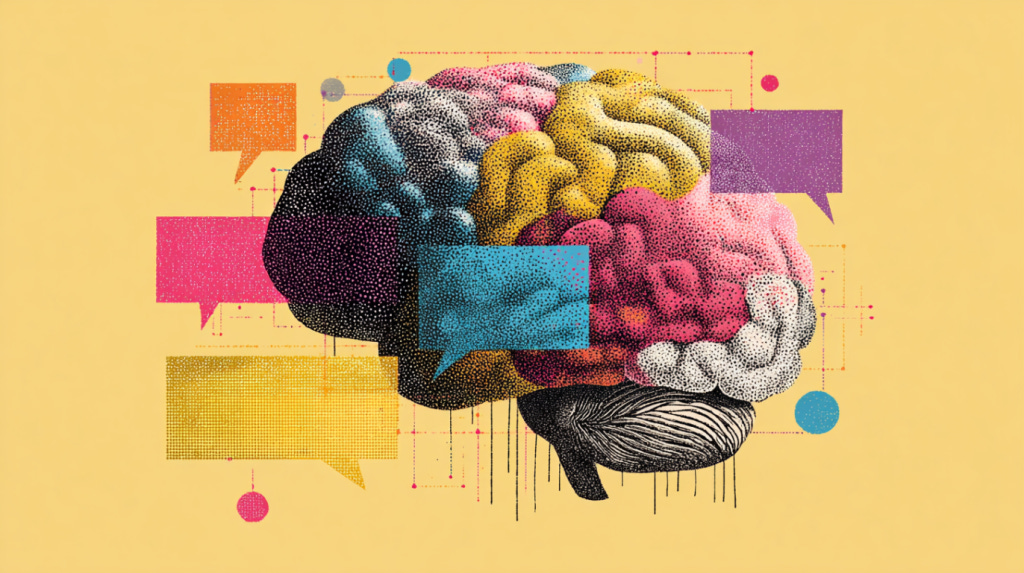What I Learned Last Week #21
AI browsers. Cute robot that you can buy & program. Hiring engineers who can code with AI. How to build AI features that people want. Outrageous marketing. Hack to cut speech-to-text costs. And more..
Last week was full of cool stuff, but the most exciting part for me was switching to a new browser with AI capabilities:
A brief review of the AI browsers that I tried (disclosure: the one I chose is not really an AI browser).
Hugging Face launched a cute mini robot that you can buy and program.
How to adapt your hiring process to account for AI-driven development.
How to avoid building AI features nobody wants.
The new outrageous marketing techniques of Cluely.
How to cut costs with speech-to-text engines by 2-3x.
A Dropbox VP shares how he uses AI agents daily.
MemO launches human-like memory management for LLMs.
Moonshot’s Kimi2 is open-source and outperforms GPT-4.
Elon announces Grok 4, already a troublemaker like his master.
Denmark has a new law to protect your face, voice, and body.
Read below for a detailed account!
AI Browsers Are Coming
Last week, I said my goodbyes to Google Chrome, after a happy 15-year relationship. I expected to move to one of the new AI browsers, but I did not see the benefits. Still testing, but here are my brief thoughts:
Arc Browser was the winner for me. It is very similar to Chrome (all browsers are built on Chromium, which also powers Chrome), but it has already improved my productivity. I love the spaces, easels, boosts, temporary windows, and even the basic AI capabilities. Will try to see if it works with OpenDia (which I mentioned last week). Oh, and it works with Chrome extensions, which was a reason why Safari never was good enough for me.
Dia is a new AI-first browser from the Browser Company, the same ones who develop Arc Browser. It has some interesting AI capabilities, great design details, but I realized that the mindset/habit shift would be too big for me.
Perplexity’s Comet is a better integration of Perplexity in the same Chromium. Looks very similar to Chrome, but (same as Dia), I find it still hard to see the benefits of using it. Or I am an old dog who can’t learn new tricks (a possibility I am considering).
I am a bit concerned about the fact that The Browser Company has shifted its focus from Arc to developing Dia, which means I may have to switch again soon if Arc becomes obsolete. But I see a lost opportunity for Dia/Comet and other AI browsers: understanding that onboarding is a critical experience, if you want to shift the browsing/productivity paradigms, especially for people who started browsing with Netscape Navigator 2, 30 years ago.
Try them out and let me know what you think (just reply to this email)!
Hugging Face Launches Reachy Mini Robot
Hugging Face has launched a $299 desktop robot that you can program yourself. It's fully integrated with Hugging Face’s AI Hub, aims to make robotics accessible, and promises to be better than the previous robot I tried, Anki's Cozmo. Please help me find a good reason to buy it! Read more →
Rethinking Engineering Hiring for The AI Era
The new AI playground demands a new kind of developer who can orchestrate AI tools rather than just write code. If you want to know how to include AI fluency, orchestration, and communication with AI agents into your hiring processes, this article has some good points. Read more →
How to Avoid Building AI Features Users Don't Want
Miqdad from OpenAI shares a simple 4D formula to avoid flashy AI features no one uses: Discover real user friction, Design AI that fits naturally, Develop systematically with tests, and Deploy with a killer first-use experience. Easy, no? The key is how you implement it in your process... Read more →
Wild & Outrageous Marketing in The Age of AI
Andreessen Horowitz backed Cluely, a startup notorious for rage-bait marketing and a barely finished product. The firm believes speed and momentum matter more than perfect products in AI today. Founder Roy Lee uses controversy to break through the noise, which could be a new bold pattern for AI startups fighting for attention. Read more →
Smart Speech-to-Text Hack to Cut Costs
Whoever thought about this is a genius! If you use speech-to-text (with OpenAI Whisper or other tools), you can save money by speeding up your audio files. 2x or 3x speed works well without losing much accuracy. The article from
is pretty technical, but OMG smart! Read more →How a Dropbox VP Uses AI Agents
Morgan Brown, Dropbox’s VP of Product for AI, reveals his top AI workflows that save time and boost productivity: intelligent document summaries, simulated executive questions, and automated report takeaways. There's more to it, and
always asks insightful questions in his interviews. Read more →MemO's Human-Like Memory Management
Chinese engineers have developed MemOS, an AI memory operating system that enables persistent, evolving recall. By treating memory as a key resource, MemOS dramatically improves reasoning and context retention across sessions. Finally, a solution to my aging brain cells that will help me remember what my girlfriend asked me a few days ago! Read more →
Moonshot AI’s Open-Source Kimi K2 Outperforms GPT-4
Moonshot AI just dropped Kimi K2, a trillion-parameter open-source model that beats GPT-4 on key coding and math benchmarks. It has agentic capabilities, can run autonomous multitask workflows, and it's a good alternative if you are paranoid about big AI players like OpenAI or Anthropic. Read more →
Elon Launches Grok 4 and New Controversies
Elon Musk unveiled Grok 4, claiming it’s the smartest AI able to solve tough engineering problems with a multi-agent system and native tool integrations. While benchmarks impress, ongoing issues, such as racist outputs on X, are a concern about what the future can bring. I found it very funny that, despite all the efforts, Grok 4 is still convinced that Elon is the #1 misinfomer in the whole world! Read more →
The Right to Your Face, Voice, and Body
Denmark is set to become the first European country to give people copyright rights over their own face, voice, and body. It is a new law that targets AI deepfakes by allowing citizens to ask for the removal of unauthorized uses of their likeness and seek punitive compensation. Read more →












